Do the Research; Advocate for Yourself
Kimberlee had always been a fighter, though she didn’t realize how much until life gave her no choice. Growing up in Oklahoma City, the youngest of four with three older brothers, Kimberlee was fiercely protected. She felt like the center of her family’s universe, cherished by her parents and shielded by her brothers. Life had always felt secure, steady, and full of love.
That sense of security was shattered one quiet day in 2020.
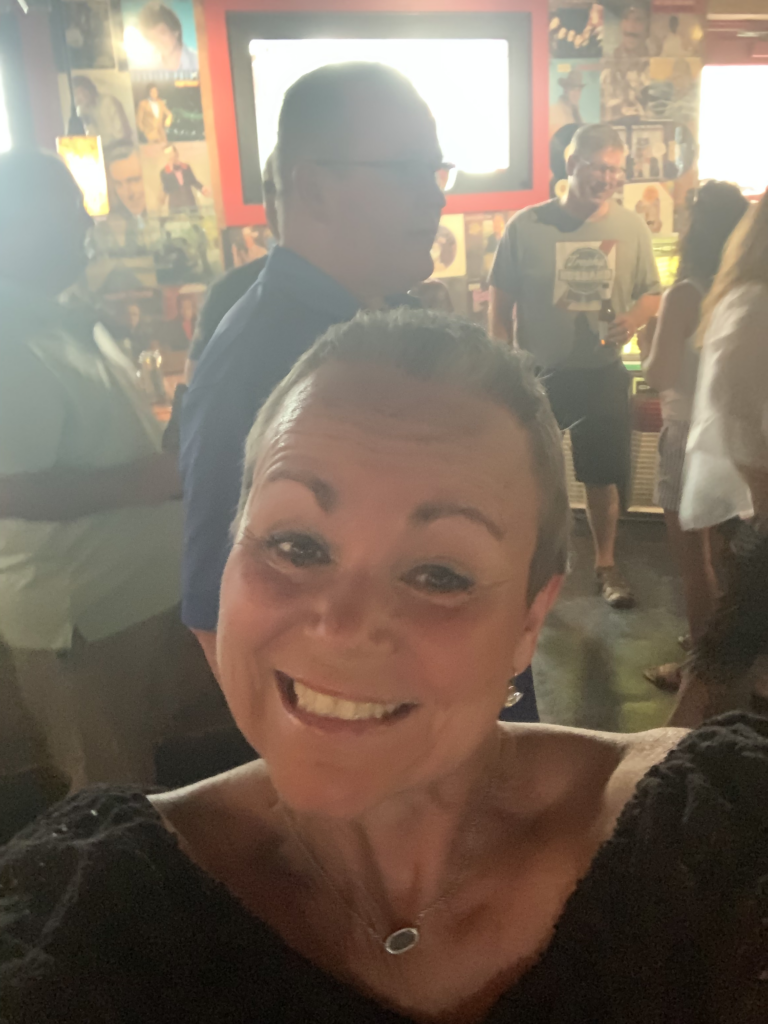
It began with something small, just a slight discomfort in her right breast, a feeling she brushed off at first. She was busy—she’d just moved into a new house, helped her mother transition into a new place, and was focused on her family. Life was too full for anything to be wrong, too precious for cancer to even cross her mind.
But it did. When Kim’s doctor confirmed the lump she’d felt was breast cancer, the world stopped spinning for a moment. “I’ve never been sick a day in my life,” Kimberlee remembers thinking, her disbelief still fresh. She had no family history of cancer, no warning signs. The diagnosis came out of nowhere, like a thief in the night, stealing the security she had always known. Her voice still carries the weight of that shock: “This wasn’t in my plan. How could this be happening to me?”
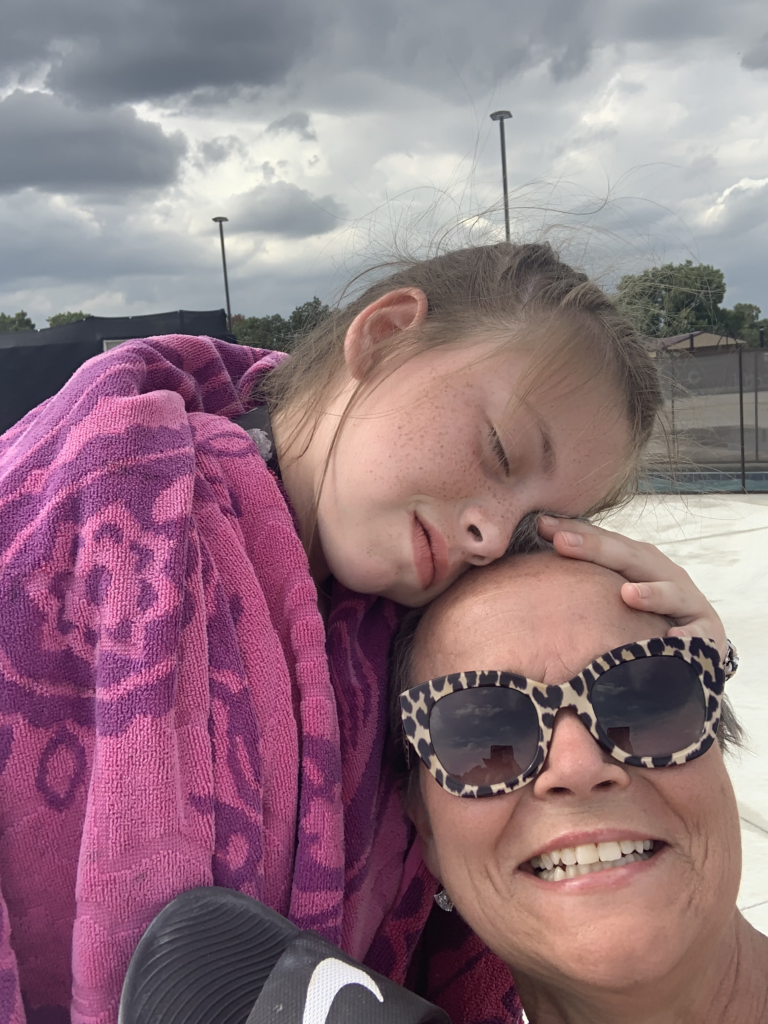
There was no time to stay in that moment of disbelief. Kim knew she had to fight, but the path ahead was terrifying and uncertain. She reached out to friends, many of them nurses, who became her lifeline in those early days. They helped her make sense of the countless questions swirling in her mind. Kimberlee wasn’t going to face this battle unprepared—she wasn’t going to go quietly into a fight for her life.
One thing became clear to Kim early on: she wouldn’t allow cancer to destroy her body. She had seen the effects of traditional radiation on her friends, the toll it took on their bodies, and the long-term damage it left behind. She couldn’t go through that. That’s when she discovered proton therapy, and it became her beacon of hope.
“I knew it was the right choice for me.”
“I knew it was the right choice for me,” she says, her voice steady but filled with conviction. But even after deciding that proton therapy was the gentler, smarter option, Kimberlee faced another hurdle—insurance denied her claim. In those dark moments, fear crept in, not just about the cancer, but the overwhelming thought: Can I afford to fight this?
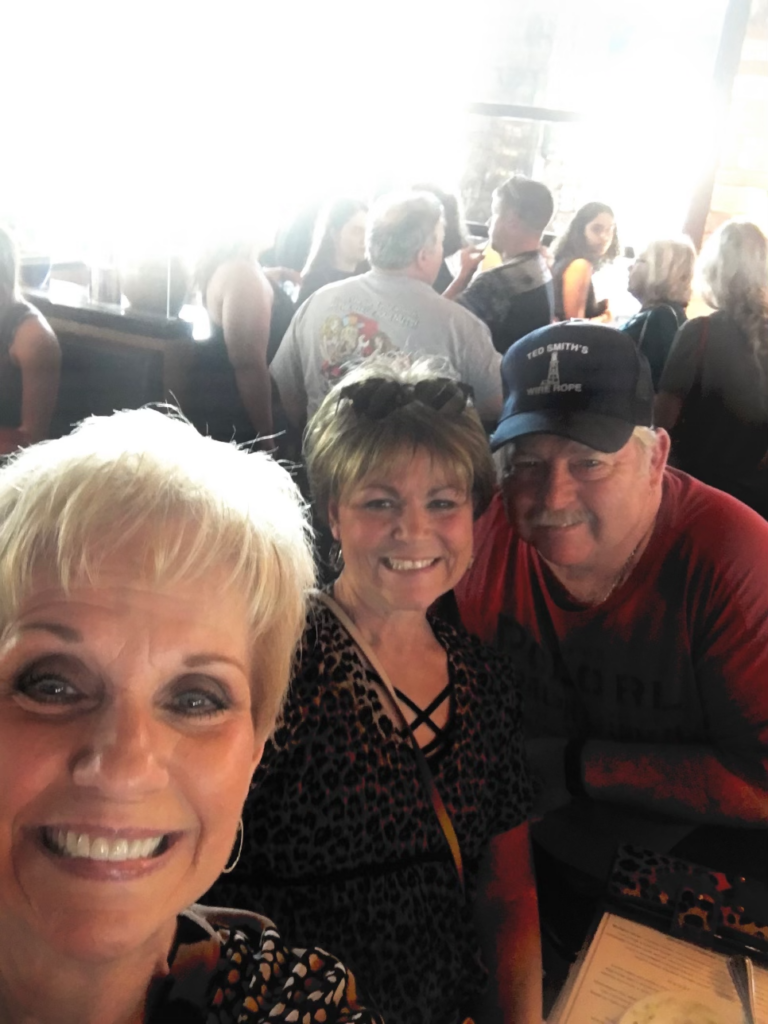
But the team at the Oklahoma Proton Center wouldn’t let her give up. They fought alongside her, challenging the insurance companies, pushing for approval, and reassuring her that they wouldn’t let her fall through the cracks. “They were there for me,” Kimberlee says, her voice softening as she reflects on the relentless support she received. She knew she wasn’t fighting this battle alone. The doctors, nurses, and staff at the Proton Center had her back, treating her like family, not just another patient.
Proton therapy brought Kimberlee a kind of relief she hadn’t expected. It spared her body from the additional side effects of traditional radiation, allowing her to focus on healing without the fear of long-term damage. There were no burns, no deep, lingering pain—just a mild tan where the treatment had targeted her tumor. She was able to work through it, to be the wife, mother, and grandmother she always wanted to be. “It was a walk in the park compared to chemo,” she recalls, though she doesn’t downplay the difficulty of her journey.
But it wasn’t just the treatment that made Kimberlee’s experience bearable—it was the people. Dr. Chang, the doctor at the helm of her proton therapy, became more than just a physician to Kim. He was her guide, answering every one of her hundreds of questions, never once making her feel like she was a burden. “He never rushed me,” Kim says, her voice cracking with emotion. “He made sure I understood everything, and he always listened.”
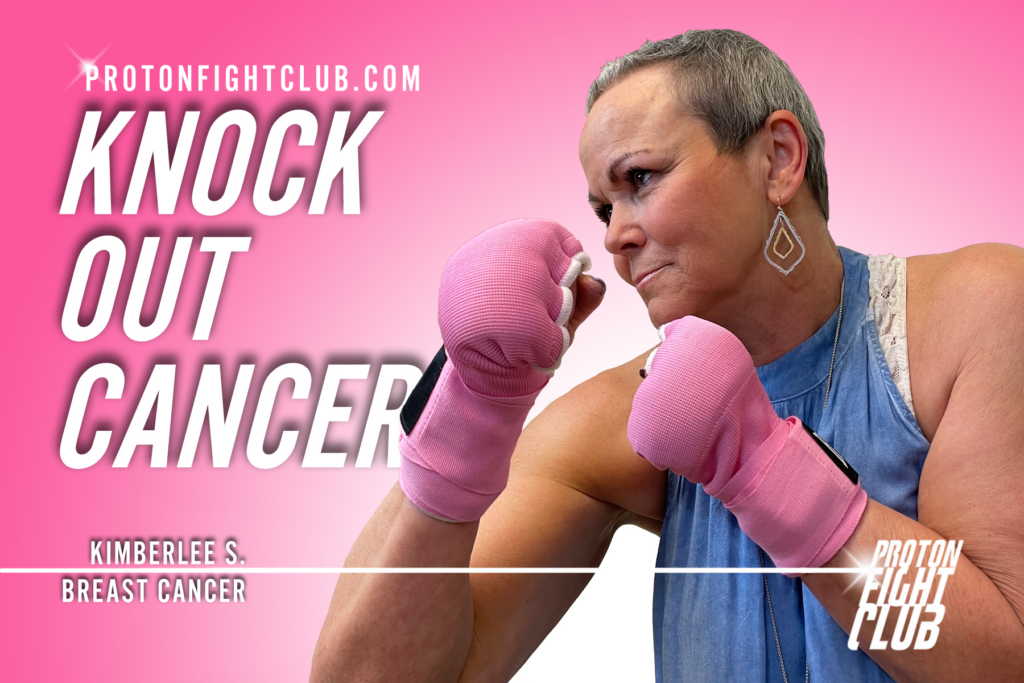
As the treatments went on, something incredible happened. Kim began to hope. The fear that had gripped her heart slowly loosened its hold. She started looking forward to the little moments again, the time spent with her bonus children, her grandkids, her husband. And when the day finally came to ring the bell at the Proton Center, signaling the end of her treatment, Kim let go of months of anxiety and pain. “I didn’t think I’d cry,” she says, but the tears came, an uncontrollable release of every emotion she’d held inside.
Kim’s battle didn’t end when she rang that bell. The aftermath of a cancer diagnosis lingers, she says. “Every ache, every pain, makes you wonder if it’s back.” But cancer has also given her something unexpected—a deeper appreciation for life. She sees her grandchildren’s laughter as a gift, her time with her husband as more precious than ever. “Life was always precious,” she reflects, “but now it’s even more so.”
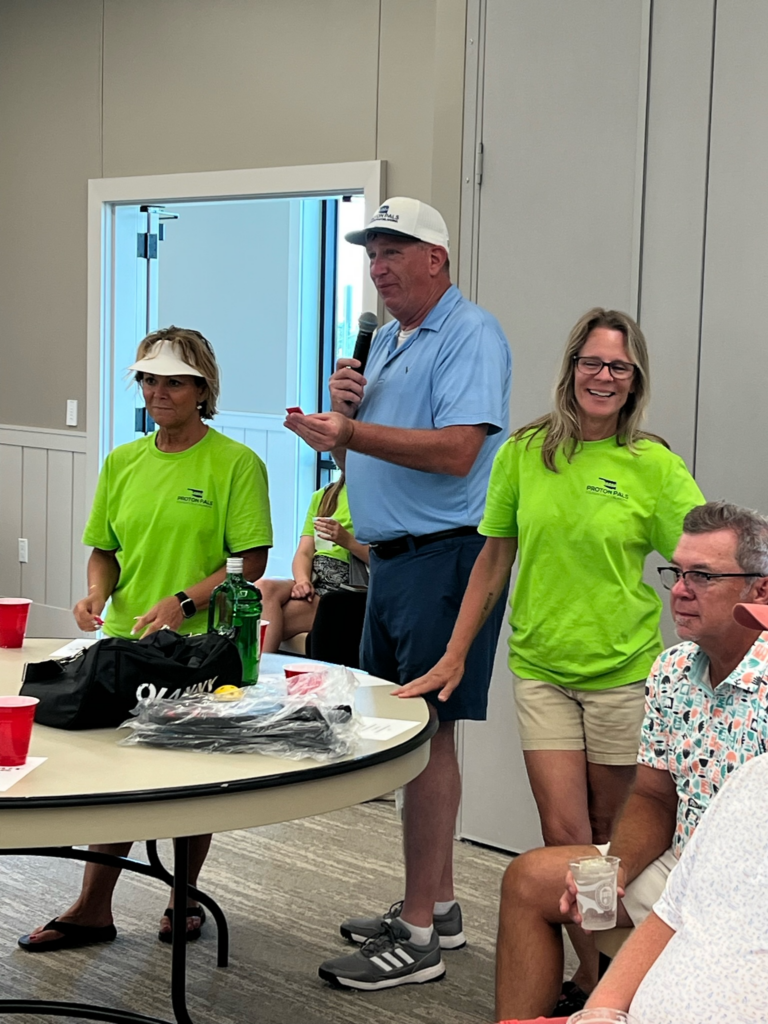
Her advice to others facing the same terrifying journey is simple but powerful: be your own advocate. Ask every question, challenge every protocol, and never accept an answer that doesn’t feel right. Kim’s determination is a testament to her fighting spirit. “Nobody knows your body better than you,” she says, her voice full of hard-earned wisdom.
“I want everyone to know they don’t have to go through this alone. There’s a whole team out there ready to fight with you.”
Today, Kim serves on the board of the Proton Pals Foundation, a group dedicated to helping cancer patients through the financial and emotional burdens of treatment. Through her own experience, she’s now fighting for others, making sure they have the support they need, just as she did. “I want everyone to know they don’t have to go through this alone,” she says. “There’s a whole team out there ready to fight with you.”
Kim’s journey isn’t just a story of surviving cancer—it’s a story of resilience, love, and finding strength in the darkest moments. She is a fighter, and she’s still here, ready to show the world that even when life shatters your sense of security, you can rebuild it stronger than ever before.
Patients or others wanting more information about proton therapy and how it can be used to treat cancer can reach out to the center at (405) 773-6700 or visit the Oklahoma Proton Center website at www.okcproton.com.
